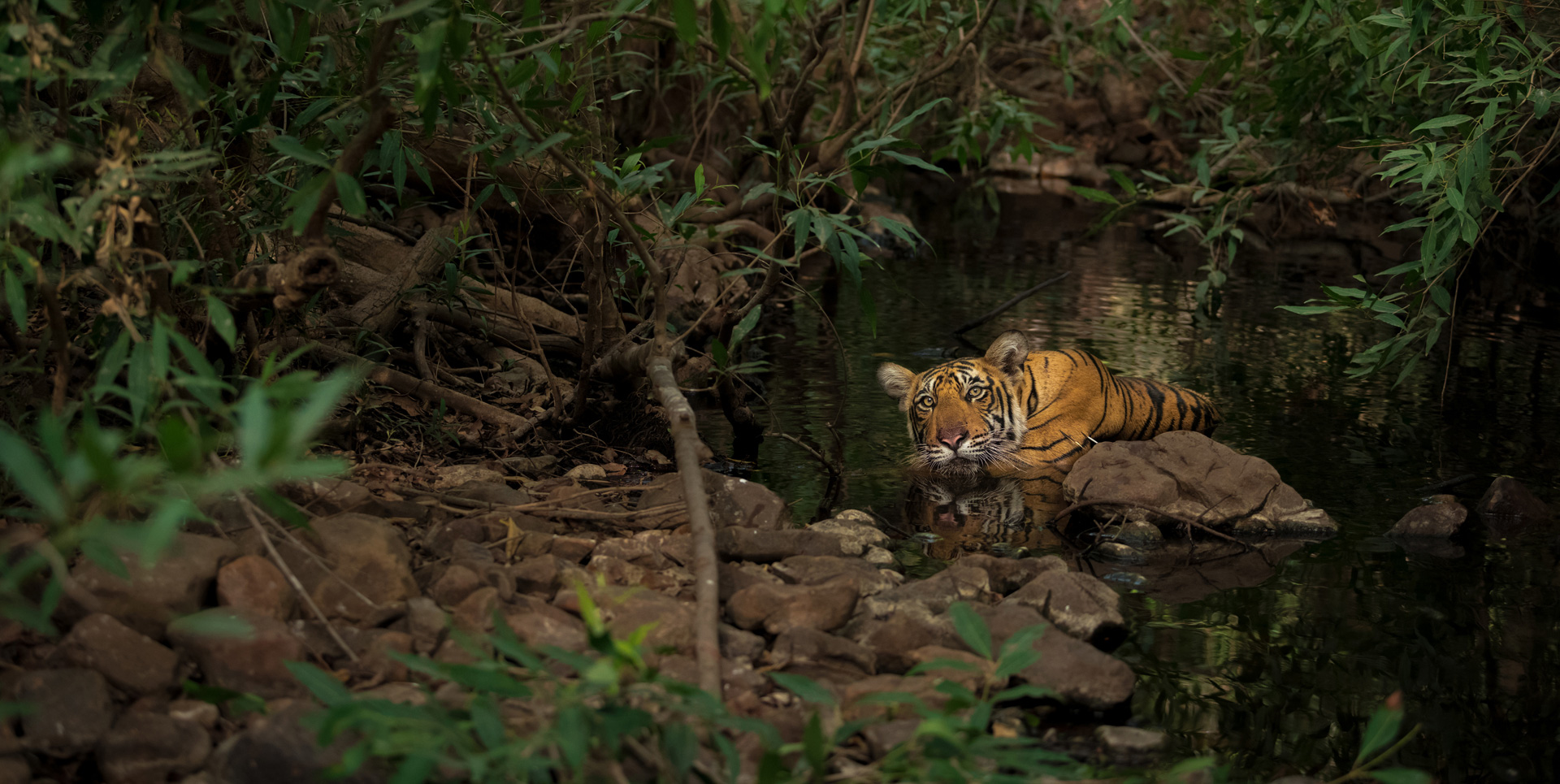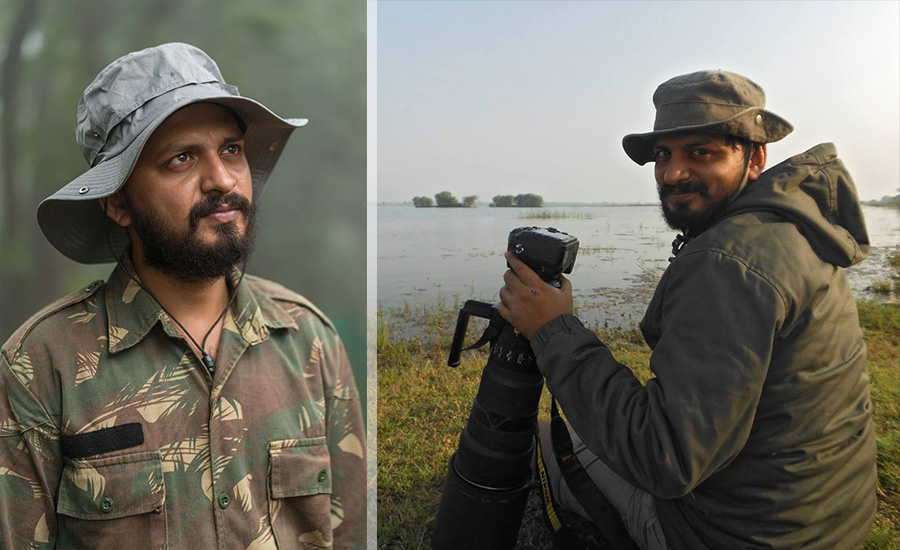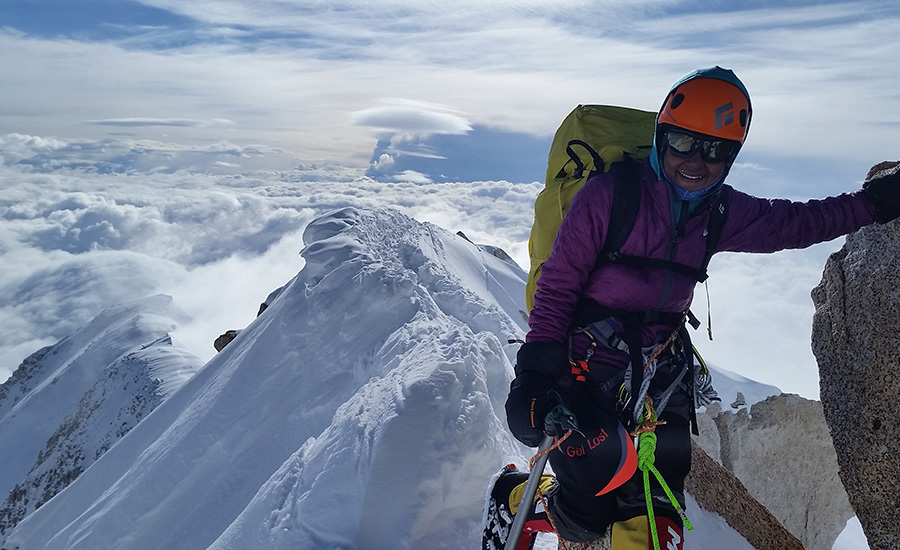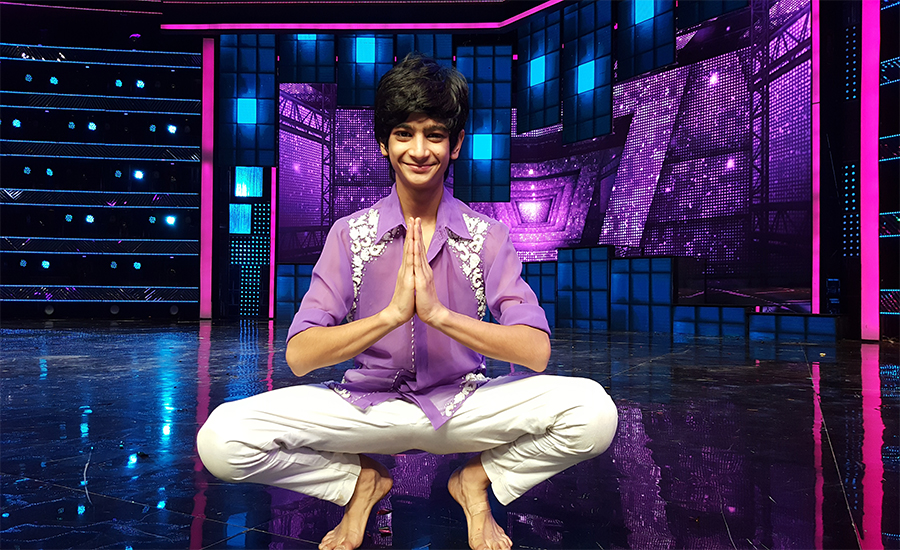

Soumabrata Moulick: The Award Winning Nature, Wildlife and Conservation photographer and a filmmaker from India
Known As
Soumabrata Moulick
Mother's Name
Smt Aparna Moulick
Father's Name
Shri T.D. Moulick
Birthday
21st January 1987
Place from
Kolkata, India
Proudly says ‘imd1’ for
Arts-Photography
Soumabrata Moulick, originally hailing from Kolkata is an award-winning nature photographer, writer, trainer and speaker, has rightly quoted that, “the progress of human race can be credited to Art”. An engineer by education, he devotes all his time to the observation, study and documentation of wildlife and nature photography. He was recently conferred an award by the National Geographic contest held in 2018. Additionally, his work and assignments are acknowledged on national and international media platforms. Every artist would relate to his ‘point of view’ because Soumabrata captures a whole story in a single frame. We are very grateful to hear all about Wildlife Photography from such a creative persona.
We are really keen to know; how did your journey begin?
Even while pursuing a degree in mechanical engineering at the behest of my parents, I had a keen interest and inclination towards arts. Camera was something that was easily accessible for me and I am very fortunate and thankful to my family for having a of couple of DSLR cameras at home. Soon after completion of my education, I joined a renowned MNC and after that, I worked with a renowned bank and as time unfolded, I started building up my kit for wildlife photography because it is relatively expensive. Being an ardent wildlife enthusiast, my wife came across a photography contest information that was published in a well-known magazine. She insisted me to participate in the contest and I was among the eight participants who were selected from across India and that was the time when I met my mentor, Dr. Caesar Sengupta. He offered me to work with him on his projects. This is how my journey started. In order to reach a wider audience, I started collaborating and getting associated with big brands to conduct my workshops on nature photography. Then slowly I started teaching photography and eventually I ended up in a situation where it was not easy to handle multiple professions and I became a full-time wildlife photographer. In India, this craft is still young and taking baby steps. Wildlife photography here, is still at a nascent stage even when one has thorough knowledge in photography and geography, it is not easy to sustain in this field. So, this is my journey so far, this is where I have reached.
What were the hardships/hurdles you’ve encountered and how did you overcome them in your journey?
Most of the people pursue nature photography as a hobby as it is not easy to sustain solely pursuing nature photography. 20-30 years back, wildlife photographers strived to sustain by submitting their work to publication houses, etc. In the current scenario, the print media has been replaced with digital media, which doesn’t pay you much for your work. Having the knowledge and experience, one could become an entrepreneur or philanthropist or public speaker that helps one sustain.
Know me Beyond Photography
Life Mantra:
A man is free the moment he wishes to be-Voltaire
Favorite Personalities
Robert Capa
I draw Inspirations from
Robert Capa
Food I Love
Biriyani
Food I Hate
I particularly don’t hate anything
Like Vacations at
Andaman & Nicobar
Favorite Pass time
I listen to music, read books
Favorite Movies / Series
All Quentin Tarantino movies and Nature shows
Favorite Actor / Actress
Audrey Hepburn, Sharon Stone

Who has been your influencer in this journey & how?
My wife, as she has been very supportive in all my endeavors and Dr. Caesar Sengupta because he has faith in me from the very beginning.
Tell us something about your GURU?
Best thing I like about Dr. Caesar Sengupta is that he gives you utmost freedom, that’s what I feel is the essence of achieving excellence in any field. It is very difficult to bring out creativity from a person who is caged emotionally. He (Dr. Caesar) would always encourage me to push my boundaries and would continuously motivate me.
Success is incomplete without its share of setbacks. What advice would you give to others about handling them?
Being a photographer, I advise budding photographers to click all type of images, so that they learn the difference between good and bad images, and their awareness of the craft increases. When good images get added to their portfolio, they will automatically get the recognition they deserve.
Do you think Photography and its learnings can be helpful in life even if one does not want to consider it as a career?
Yes absolutely, usually photographers gain valuable experiences, their perspective about the world around them changes and they start to appreciate the beauty around them. Their experiences will heavily affect their lifestyle and make them notice things which for them didn"t exist. I feel every individual should try photography, as it teaches patience, precision and makes one more creative.
What are the pre-coaching essentials e.g. Right age, mindset or any other?
Whenever you feel like you’re ready, just pick up the camera and start. There is no age limit or correct mindset to start pursuing it.
How has technology transformed the world of Photography?
In earlier days, photography used to be a very expensive craft, people used to develop photographic films manually which was time consuming. With the advent of digital cameras, images can be seen right there in field. Two major changes after the invention of the digital camera: one is that the amount of content has increased a lot, so you just cannot create average content anymore; another one is that the digital camera has great benefits such as the effort involved in clicking a single image is reduced drastically. Also, now it is very easy to capture a subject and rectify or erase images as per your convenience.
What according to you is scope of Photography in India?
If you’re into commercial photography like for events and weddings, then the scope is good, being in a competitive market people are still able to sustain in it. But wildlife photography is still at a very nascent stage, it is sustainable, but one must gain considerable experience before taking the plunge and you also need very good brands to support you. It is growing, and I look forward to more support through local brands. However, it should not be like “give us your photos and we will give you credit” that’s not the right way as the photographer has put in a lot of efforts in capturing those pictures. One must not approach a photographer and ask for his/her content for free, it seems like asking a shopkeeper for free goodies or a computer engineer to create a website for free. If we cannot do injustice to such people, then why be so unfair to the photographers, this mentality should actually go away.
If you were to bring one big change in the way people get trained in Photography what would that be?
I want people to practice more in the open and experiment rather than just sit and watch tutorials, the online material put up in the form of videos are available at our fingertips. I want the online content to be in a very concise manner and to the point so that people do not spend a whole day just watching videos, there should be time for self-exploration by going out and applying what is being taught.
What do you suggest for better accessibility of Photography training in remote parts of India?
There is absolutely a lot of talent untapped and the internet has made all the knowledge available at our fingertips. A learning platform must be interactive, if somebody is going through my course and if he/she has questions and I’m not available at that moment, then it becomes very difficult to be in that state of mind when that doubt had come up and then it gets buried, and usually goes unaddressed. There must be an interactive study medium where students can easily approach teachers when in doubt. But there are some people who are doing a really great job of sharing knowledge.
Your piece of advice to parents who are skeptical about their children taking up a career in any co-curricular activities?
It is easy to become a doctor or an engineer rather than making a career in some commercial art field. It is possible and many people are creating their space in the industry. I must say that if a child is interested in any such extra co-curricular activity, he/she must be encouraged. Yes, there will definitely be challenges in taking you ahead in this field, but one should always give it a try because it is always better to play and lose than not to play at all.
Which was “that” moment when you considered yourself as “I Am The 1”?
I don’t really feel I have arrived yet, as I am still going on. I had been doing Wildlife Photography for a very long time. Earlier as I mentioned about my inspiration Robert Capa, who quoted that “if your pictures are not good enough, you’re not close enough.” It’s not that he was advocating telephoto lenses, but he was asking the photographers to get physically closer to the subject. Robert Capa was not a wildlife photographer, he was involved in a lot of photojournalism. I started applying his principles and that is when the whole scenario changed. From images which would get lost in the crowd, I reached to a point where the images started to stand out. That was the moment, when I felt like ‘I Am The 1’.
What is your Success Mantra?
“if your pictures are not good enough, you’re not close enough.” -By Robert Capa
Any other thoughts you want to share?
Go out and shoot, you can’t be sitting at home and thinking about adding good images to your portfolio. Going out will help you to explore the world around, make mistakes and learn more from it.














